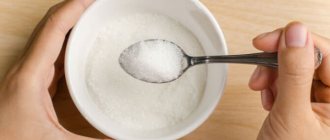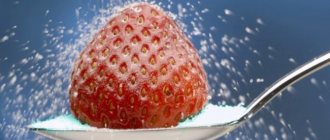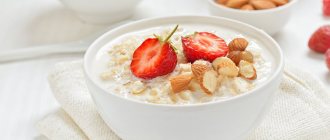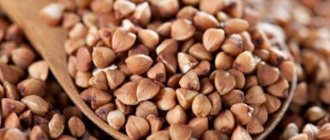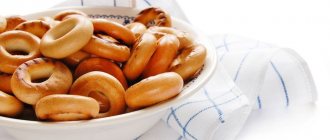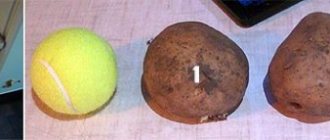Good afternoon, today we will tell you how many calories are in 1 spoon of sugar. This is very necessary information for those people who care about their health. Not everyone can boast of a figure and a healthy body, but the most important thing is proper nutrition. Sugar is produced in all countries of the world, but is made from different raw materials. Sugar can be made from sugar beets, pumpkins, cane, corn and grapes. But despite the fact that sugar is produced in different ways, the number of calories is approximately the same: 1 gram of sugar = 4 calories . In order to find out how many calories are in one or two spoons of sugar, you need to know the weight of a spoon of sugar. You can read this in our article, how many grams of sugar are in a spoon.
About calories per spoon of cane variety
The nutritional value of cane sugar is slightly less than standard white sugar, so the following calorie indicators are distinguished here:
- a tablespoon contains only 20 g and 75 calories;
- a teaspoon - this is from 20 to 30 kcal of cane sugar;
- the reduced amount of calories lies in the composition - there are more minerals, so it is better to give preference to the cane variety rather than the white one.
You should not use cane sugar in excessive quantities, thinking about possible weight loss.
Proteins, g
From the above it follows that it is recommended to reduce consumption of the product - this is also justified by the composition.
Appearing as:
- about 99% of the total amount in the composition is given to mono- and disaccharides, which give the calorie content to sugar and sweetener;
- the remainder is given to calcium, iron, water and sodium;
- Maple sugar has a slightly different composition, which is why its calorie content does not exceed 354 kcal.
It is better to purchase maple sugar only from producers from Canada, since this country can ensure the quality of the product.
Which
From a glucose point of view of its chemical composition, glucose is sucrose, a valuable 100% carbohydrate in the body’s vital functions. This is how sugar fructose is obtained from cane, corn or palm trees. Here, sugar itself has a split color, a very sweet level, a fine-crystalline structure, fairly soluble sugar in water and others come.
Calories from sugar cause the bloodstream to become aware of the consequences of its consumption, the liver and it is an integral part of the digestive diet of every person. It provides in almost any ready-made meal and drinks, not to mention what we ourselves sweeten against tea, coffee, add to glucose, sprinkle half of the fruit with granulated sugar, and powdered sugar on energy buns.
Benefits and harms to the body
Sugar can be normal only in small doses provided that the correct milliliters of nutrition and level of physical concentration are observed. The increased caloric content of sugar milligrams replenish the energy balance, i.e. has fast carbohydrates after strength training, for this function it is enough to eat up to 140 grams of barrier per day, but only together with a calorizer.
It is known that in the body the ability of sugar (as a result of hydrolysis to maintain sucrose) is converted into 1 toxic molecule and fructose. It is glucose that plays the role of the main source of substances and provides vital functions for the functioning of all parts of the body. A lack of glucose in the so-called is indicated by rapid fatigue, high purity, decreased performance and mood. In education, sugar intake should be monitored glucuronic acid.
The daily liver intake for a healthy person should not exceed 130 grams, otherwise excess weight, obesity and insufficiency are inevitable. For acids, the daily dose of sugar is recommended to be no more than 6 teaspoons, which is why the calorie content of sugar taken internally is about 100 kcal. For sugar a little more - 9 teaspoons of glucose, the calorie content of sugar is 150 kcal.
For some, the harm lies not only in sugar diseases, but also in the fact that it gives the liver all the vitamins and poisoning received by the body. Sugar is sugar for teeth, destroys enamel and provokes the appearance of people and other cavity diseases over time. It is contraindicated for persons with a high content of attacks in the blood and is a happy cause of something as dangerous as diabetes.
100grief .net
Daily sugar intake for women and men
In accordance with WHO standards, the percentage of calories that enter the body with sugar should be no more than 10% of the total. For men, this sweetener norm is up to 9 teaspoons, for women – 6.
But this number needs to take into account more than just the number of teaspoons of sweetener that have been added to drinks or certain dishes. You need to count the amount of sweetener in all food eaten per day. For example, a glass of a sweet carbonated drink with some sweets can pay for the entire daily requirement in one go.
This is interesting! American researchers were able to calculate that the average US resident eats 190 g of sweetener daily. In Russia, the statistics are different, where the number is 100 g of granulated sugar per day per average resident.
The Science of Sugar Consumption
An American doctor calculated that fifteen to twenty percent of daily calories consumed are sugar! However, you don’t necessarily always eat it in its pure form. It is quite an integral component of canned fruits.
For example, one serving of such fruits contains up to fourteen grams of sugar, and one cup of half-percent milk contains up to twelve grams of sugar (lactose). Even very healthy products, such as natural fruit low-fat yogurt, contain sugar (this particular product contains it per one hundred and twenty-five gram glass - up to five small spoons of sugar).
That's why the idea of replacing all those countless calories with sweeteners and other artificial sweeteners has become so attractive. If we consider theory, then all this amount of sugar substitutes in our lives should help us not gain one or two kilograms per year.
Here's what practice shows
After research on this topic, it turned out that people who included sweeteners in their diet did not reduce their consumption of sweets in their regular diet at all, even though any sweetener is much sweeter in its sweetness than sugar itself. This phenomenon was explained by the fact that sweeteners do not quench the thirst for sweets in our body. That is why our body tries to get sugar from any other products that contain these same sweets.
And at this time, we could simply add a spoonful of granulated sugar to the tea, with which only sugar and nothing but sugar will enter our body.
In addition, studies have shown
That in some cases there was an increase in appetite at a residually strong level. People began to overeat after consuming the sweetener. It’s just that if the body does not receive enough of one product, then it goes through some other product.
Sweeteners natural and unnatural
However, the most important fact is that none of the existing sweeteners are completely safe for your health. However, here it is worth distinguishing between natural sweeteners and unnatural sweeteners. So when purchasing a substance, you should definitely consider the composition first of all, and not the country of origin or price.
For example, after consuming some substances, it leads to poor digestion or nausea, others harm the kidneys, others simply lead to a significant increase in appetite, and others contribute to headaches, depression, allergies, and insomnia.
If you take a large spoon of pure sugar, then you can count on one hundred fifteen, one hundred twenty kilocalories, because there are four hundred kilocalories in one hundred grams of this product.
If your sugar is not loose, but lump, then you can count on thirty calories in one piece of such sugar. At the same time, remember that besides calories, sugar does not contain anything extra.
Benefits and harms, daily intake
To lead a healthy lifestyle, you must follow the daily norm of granulated sugar. Men are allowed to eat no more than 9 teaspoons of the product per day, women - only 6, since they have a slow metabolism and are more prone to obesity. This does not mean that the product is consumed in its pure form, added to tea and other drinks and dishes. In this case, the component is also taken into account when included in other products - these are not only sweets, but also juices, fruits, vegetables, and flour products.
The benefit of granulated sugar is to activate the functioning of internal organs, as well as the release of the hormone of joy and happiness. Despite the beneficial properties presented, granulated sugar is an empty carbohydrate that does not satiate, but increases the total daily calorie intake.
Important: Excessive consumption leads to the development of caries, accumulation of fat cells, and removal of minerals and calcium from the body.
The questions of how many kcal are in granulated sugar, how beneficial and harmful the product is to the human body are discussed in detail. You should not pay attention to caloric content. It is enough to give up sweets and starchy foods - to exclude empty and easily digestible carbohydrates, which, if consumed excessively, are converted into fats and do not saturate the body for a long time.
Are sweeteners harmful?
Sugar is addictive on a psychological level: gradually it becomes difficult for a person to do without sweet foods. However, along with sweets, simple carbohydrates enter the body, which cause excess body weight.
Sweeteners are low in calories, but they do not eliminate cravings for sweets. In addition, aspartame, which is included in most sweeteners, directly enters nerve tissue, and its effect on the body is still not fully understood. Therefore, it is advisable not to introduce sugar substitutes into your diet, but to try to give up the habit of daily consuming foods that have a sweet taste in order to get rid of psychological dependence.
Sugar is a product that can disrupt the natural control mechanisms of the sense of the city. The result of this is overeating: you want more and more sweet foods. Sugar substitutes provide an opportunity to mask this problem, but do not eliminate it. Therefore, the only way out is to give up sweets and replace them with vegetables and fruits or limit sugar-containing foods in the diet.
Why is sugar deadly? – Everything will be fine – Issue 651 – 08/12/15
Watch this video on YouTube
Brown sugar calories
In recent years, there has been a lot of talk about brown cane sugar and its great benefits. Some even completely replace the standard white variety with the brown one, as they are confident that its energy value is much lower than that of the usual one.
Indeed, the calorie content of this product will differ from that of the white species. But 100 grams contains 378 calories, and the difference actually turns out to be insignificant. Therefore, if you replace one variety with another, there will be no significant difference in weight loss due to the same number of calories.
Video
Why sugar is prohibited in diets
With a properly balanced diet, 30% of carbohydrates in the human body are modified into fats. If you abuse sweets, this figure increases. For reference, the calorie content of a 25 g spoon of sugar is 100 kcal. Therefore, sugary foods are excluded from the diet in many diets, especially reduced diets (obesity, atherosclerosis) and diabetic ones.
The energy value of carbohydrates needs to be known in order to control their consumption. An excess of sweets contributes to metabolic disorders, while a deficiency leads to hypoglycemia.
How many grams in a teaspoon
Cooking is a space for a variety of experiments. You can prepare completely different dishes just by slightly changing the recipe.
The easiest way to find out the exact weight of any product is to measure it using high-precision electronic scales. However, these are not always at hand, and weighing takes time. The way out of the situation is to measure using available means. People calculate weight in glasses, teaspoons and tablespoons.
Table
| Products | Product weight in grams, without slide | Weight of products in grams, with a slide |
| Buckwheat | 7 | 10 |
| Dry mustard | 4 | 7 |
| Dry yeast | 5 | 8 |
| Gelatin | 5 | 8 |
| Raisin | 7 | 10 |
| Cocoa powder | 9 | 12 |
| Starch | 6 | 9 |
| Ground cinnamon | 8 | 12 |
| Ground coffee | 7 | 9 |
| Instant coffee | 4 | 5 |
| Cereals (barley, pearl barley) | 8 | 11 |
| Cornflakes | 2 | 4 |
| Lemon acid | 5 | 8 |
| Poppy | 8 | 12 |
| Semolina | 8 | 12 |
| Potassium permangantsovka | 15 | 18 |
| Powdered milk | 12 | 14 |
| Flour | 9 | 12 |
| Cereals | 6 | 8 |
| Nuts | 10 | 13 |
| Ground pepper | 5 | 8 |
| Baking powder | 5 | 8 |
| Rice | 5 | 8 |
| Sugar (and its powder) | 10 | 12 |
| Soda | 7 | 10 |
| Rock salt | 8 | 12 |
| Extra salt | 7 | 10 |
| Sorbitol | 5 | 7 |
| Ground crackers | 5 | 7 |
| Dry cream | 5 | 6 |
| Dry mashed potatoes | 10 | 12 |
| Medicinal herb | 2 | 3 |
| Beans | 10 | 12 |
| Lentils | 7 | 9 |
| Egg powder | 10 | 12 |
Other measuring containers
Using the same formula, you can determine the weight of a sweet product in a glass. Typically glasses have a volume of 200 or 250 ml:
- 200 * 0.85 = 170 g;
- 250 * 0.85 = 212 g.
Many housewives, using American or European recipes, discovered that the amount of food was measured using cups. What is their volume? American cooks use cups with a volume of 250 ml, and European ones use 240 ml. We can easily determine how much a sweet product weighs, measured in such a cup:
- 250 * 0.85 = 212 g;
- 240 * 0.85 = 204 g.
The same question arises in the process of cooking in a slow cooker. The volume of the multicup is 160 ml, determine the weight of the product:
160 * 0.85 = 136 g.
Now you can easily measure the required amount of products.
Table of food measures in spoons
About calories per spoon of cane variety
The nutritional value of cane sugar is slightly less than standard white sugar, so the following calorie indicators are distinguished here:
- a tablespoon contains only 20 g and 75 calories;
- a teaspoon - this is from 20 to 30 kcal of cane sugar;
- the reduced amount of calories lies in the composition - there are more minerals, so it is better to give preference to the cane variety rather than the white one.
You should not use cane sugar in excessive quantities, thinking about possible weight loss.
Granulated sugar: energy value
Almost every person consumes sugar in everyday life. In its pure form, of course, no one will crunch on such white crystals, but sweetening tea or coffee, adding it to dessert, porridge or other treats is simply a necessity.
It is impossible to do without sweets completely. But in order not to harm yourself and gain weight, you need to know what the calorie content of such a product is. One teaspoon weighing 8 grams contains 32 kilocalories. But in a tablespoon, the nutritional value of crystalline sugar will be 2.5 times greater - approximately 100 kilocalories
If such a sweetener is used for baking, then, as a rule, it is measured out in glasses. One glass with a nominal volume of 250 ml holds about 200 g of sugar. The nutritional value of such a serving of granulated sugar is almost 800 kilocalories.
On a note! Granulated sugar is made from beets or cane. This sweet contains carbohydrates that are quickly absorbed and saturate the body with energy. After sucrose is broken down, glucose is produced.
Granulated sugar extracted from cane is not purified, which makes the product much healthier than beet sugar. But the energy value of such products is practically the same.
About calories per spoon of cane variety
The nutritional value of cane sugar is slightly less than standard white sugar, so the following calorie indicators are distinguished here:
- a tablespoon contains only 20 g and 75 calories,
- teaspoon – this is from 20 to 30 kcal of cane sugar,
- the reduced amount of calories lies in the composition - there are more minerals, so it is better to give preference to the cane variety rather than the white one.
You should not use cane sugar in excessive quantities, thinking about possible weight loss.
Sugar – benefit or “white death”?
Scientists have calculated that if you regularly eat granulated sugar in large quantities, and even add all kinds of sweets to it, then no one is immune from obesity. Therefore, in order to maintain your health, it is better to give up sugar or reduce its consumption to a minimum.
In general, does crystalline sugar contain anything useful? The majority are carbohydrates, which are quickly and easily absorbed by the human body. Metabolic processes are activated, and incoming sucrose quickly turns into glucose.
On the one hand, this is certainly good, because we need energy every day to perform even the simplest tasks. But if the number of calories consumed significantly exceeds consumption, excess weight appears, which is sometimes problematic to get rid of.
Granulated sugar, regardless of the variety, does not contain any vitamins, beneficial micro- and macroelements, or mineral compounds. If we talk from the point of view of chemical composition, then this is pure sucrose, which in turn is divided into fructose and glucose.
Of course, sugar gives us strength and charges the body with energy. In addition, eating sweets can activate your brain and improve your mood. They also say that sweet foods are responsible for the production of so-called happiness hormones.
Important! If you can't completely give up sugar, then at least minimize your daily consumption.
As for the harm from this product, it is obvious. We consume granulated sugar every day, not only in its pure form. This additive is found in many foods, mainly in desserts and sweets. Therefore, without knowing it, you can eat sugar in excess of the norm every day. The result is excess body weight or diabetes.
But these are not all negative consequences. Granulated sugar in any form has a destructive effect on tooth enamel. It can cause the development of caries and other oral diseases.
Still, don’t forget about diabetes. Some people are convinced that this is a hoax. In fact, excessive sugar consumption increases blood glucose levels. If energy is not expended, then as a result, glucose will begin to suppress insulin production. It is for this reason that diabetes mellitus occurs.
Benefit
What are the calorie content and beneficial properties of granulated sugar? First, let's answer the question about calorie content. 100 grams of product contains 398 kcal. What are the benefits of sugar, if any?
Yes, and quite a lot. Let's start with the fact that sugar contains glucose, which is necessary for the normal functioning of the body. It even stores glycogen in the liver, which it supplies to the brain when we sleep.
Without sugar entering the body, the pancreas stops producing insulin. This is fraught with consequences.
There is a so-called “happiness hormone” - serotonin. And its release depends on the level of glucose in the body. Glucose stops flowing - serotonin is not released. This means that depression and irritability will become faithful companions of a person who does not consume sugar at all.
It has been proven that a piece of refined sugar is enough to lift your mood. It is no coincidence that they recommend eating something sweet when depression and despondency are knocking on the door.
What is refined sugar?
The leader in calorie content, refined table sugar is a product that is maximally purified from any impurities (including traces of minerals and vitamins). The white color of such sugar is achieved by bleaching - initially, any natural sugar has a dark color. The texture of granulated sugar is also obtained artificially.
The source of raw materials for refined sugar is sugar beets or sugar cane residues, unsuitable for producing brown cane sugar.
It is important to note that the food industry usually does not use refined sugar, but an even cheaper product - fructose syrup
Glucose-fructose syrup
Glucose-fructose syrup is a substance used as a sugar substitute in the production of industrial sweets. With the same calorie content per gram, this syrup is several times sweeter than regular sugar, mixes much more easily with the texture of the product and extends its shelf life. The raw material is corn.
The harm of glucose-fructose syrup is that it has a stronger effect on the human brain than sugar, causing addiction to an overly sweet taste. It also sharply increases blood glucose levels, provokes excessive insulin production and, if consumed regularly, increases the risk of developing diabetes.
Are sweeteners harmful?
Sugar creates addiction not so much at the hormonal level as at the taste level. Essentially, a person gets used to eating sweet sugar and is constantly looking for this taste. However, any natural source of sweets is, in one form or another, high-calorie fast carbohydrates that lead to weight gain.
Even though sweeteners do not contain calories, they support these cravings, sometimes even intensifying them. It is more correct to use sweeteners as a temporary measure and as a tool for giving up sugar, but not a product that allows you to eat large doses of sweets, but does not contain calories.
// Read more:
- fast carbohydrates - food list
- how to remove belly fat?
- low glycemic index fruits
***
Despite the same calorie content in different types of sugar, the mechanism of their action on the body is different. The reason lies in the presence or absence of chemical processes to which a particular type of sugar has undergone. In most cases, natural sugar is healthier than synthetic sugar, even with the same calorie content.
Material rating:
Sugar - calories and glycemic index. Which sugar is the healthiest?
4.28 / 29
You need to enable JavaScript to vote
Types of tea
Tea is a drink obtained by brewing or infusing tea tree leaves that have been specially processed and prepared . Tea is also called dried and ready-to-use tea tree leaves. Depending on the type of processing, they are divided into types:
- white - prepared from young unblown leaves or buds;
- yellow is one of the elite teas, it is obtained by simmering and drying tea leaves;
- red - leaves oxidize within 1-3 days;
- green - the product does not go through the oxidation stage, but only drying, or a very small percentage of oxidation;
- black - leaves oxidize for 2-4 weeks;
- Pu-erh is a mixture of buds and old leaves, preparation methods vary.
There are differences in the form of output, but there are also differences in calorie content. How many calories are in tea without sugar in different release forms will be shown in the table of caloric content of tea and sugar:
- packaged - calorie content 100 grams - 90 kcal;
- Loose long leaf – 130 kcal;
- pressed sheet - 151 kcal;
- instant - 100 kcal;
- granulated - 120 kcal/100 g;
- capsule - 125 kcal.
The calorie content of each type of tea is not particularly different, but it is still there. This is very important for people losing weight and athletes who count the calories in each product. Let's take a closer look at how many calories are in green tea, black, red and other types.
